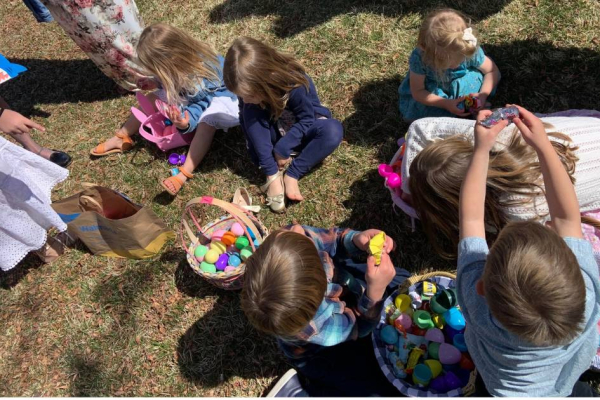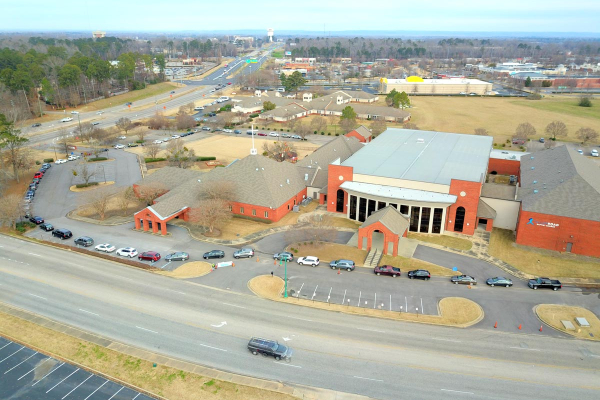How God Uses the Diaspora to Reach Across Borders

As a Korean American, Sunny Hong understands firsthand the critical role of diaspora people groups in translation work. (Diaspora are dispersed people groups who settle outside of their homeland.) But Sunny’s own path to serving in missions took many unexpected turns.
Sunny moved to the United States after college and looked for ways to serve in missions as a computer programmer. “I realized that even though I did well with computers, I didn’t enjoy working with computers, and I was trying to use that for God’s glory for the rest of my life,” she said. “Whenever I tried to take one step forward in that direction, God blocked the doors.”
Sunny wasn’t sure what to do, so she trusted God with the situation. “After waiting 15 years, I prayed to God and told him I was not going to look for opportunities anymore,” she said. “But I told him, ‘if it’s your will, you will have to open the door in a way only you can.’”
A short time later, a missionary from a Wycliffe Bible Translators partner organization contacted Sunny and asked if she’d consider representing Wycliffe to Korean American churches as a mobilizer, someone who disciples and trains new organizational recruits. Sunny enjoyed the chance to use her skills this way. “It seemed like God compiled all the things I loved to do and then asked me to do them as a mobilizer,” Sunny said. “It was similar to what I did for many years discipling the college group in my church.”
Thinking Outside the Box
Sunny has taken on many different roles since she joined Wycliffe in 1994. Throughout her journey she has learned to trust God with what happens next. “I don’t know what the future holds,” she said. “God will lead one step at a time. … I’m just obeying what God has given me today and trusting that he’s going to lead me.”
After serving in the Philippines, Sunny moved to Dallas, Texas, to conduct research as an anthropologist. She noticed that out of the 2,000 language groups still in need of a fully translated Bible, at least half were in areas where foreigners were not able to work easily.
Sunny realized Bible translation teams needed a new approach to the translation process in order to access every language. “The potential solution was to translate the Bible with people who are outside of their homeland: the diaspora,” Sunny said. Sunny started working with the global diaspora team to locate people from language groups that still needed a fully translated Bible.
During this time Sunny also spent time visiting churches for refugees. She met people who truly treasured God’s Word and trusted him in the midst of suffering and challenging situations. Sunny observed: “I didn’t know a thing about what they were doing because … they were speaking their language. … But I saw how much love they had for God.”
Language is often very important to diaspora communities because it helps them sustain a connection to their homeland. “The only thing that’s left with them is their language and their culture,” Sunny said. “If they are interested in having the gospel in their own language, then we can work with them to start a translation project.”
Connecting Communities
Each diaspora translation project looks different. Some projects are based in the United States from start to finish. Other teams start translating in the home country but need to relocate elsewhere due to unrest.
Diaspora people groups often have better access to education, financial resources and training in their host country, such as the United States. By working closely with both the diaspora community and the community in their homeland, the entire language group can benefit. The mutual support also allows the group to take ownership of a project despite the distance.
In many cases, teams can eventually return to the home country to deliver the translated Scripture. For example, several people from a language group in Asia encountered God while they were refugees living in the U.S. They learned more and worked to translate the Bible into their language. After becoming American citizens with U.S. passports, they were able to return to their home country to share the translated Scripture.
Their unique experiences created a valuable way to encourage family and friends, and the impact was life changing: God transformed about 30% of the homeland language group through his Word! The group was inspired to travel to a neighboring country where more people from their language group were living and share the gospel there too. God used the team to reach many people, and another 10% responded to God’s Word and believed. “God works in mighty ways using diaspora people,” Sunny said.
Sunny is excited to see more translation projects started for diaspora people groups that still need the Bible. She said: “Many language groups are knocking on the door and saying, ‘We want the Bible in our language.’”
God continues to open up more opportunities to serve in critical roles with the global diaspora team and bring his Word to language groups that are still waiting.
To learn more about how God is working among displaced people groups and how you can get involved, watch our free webinar!






